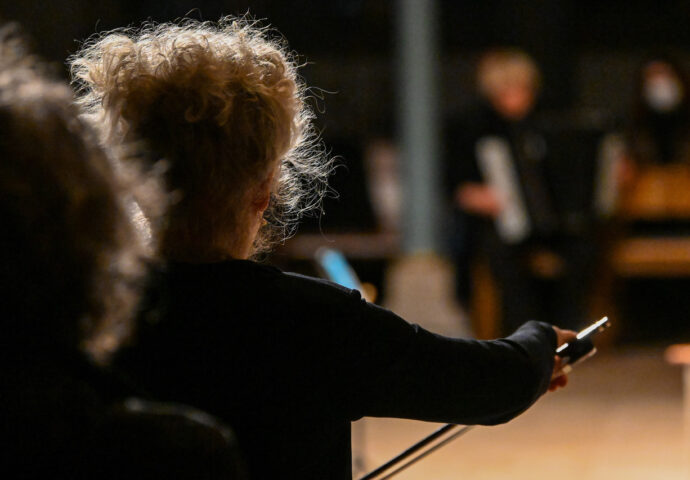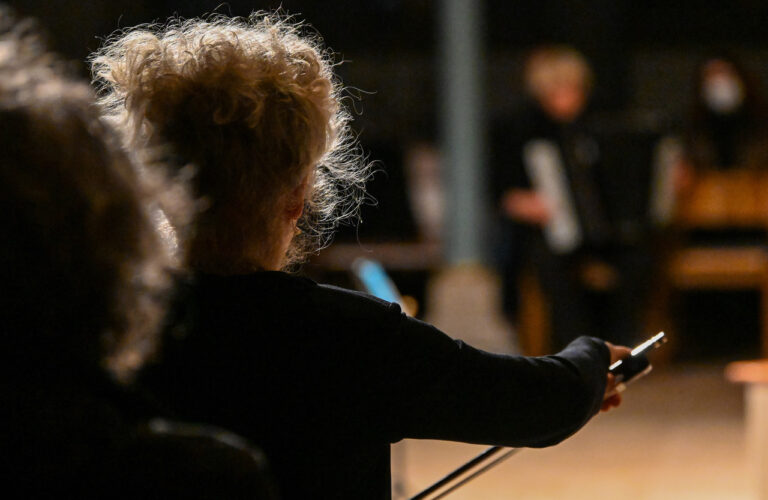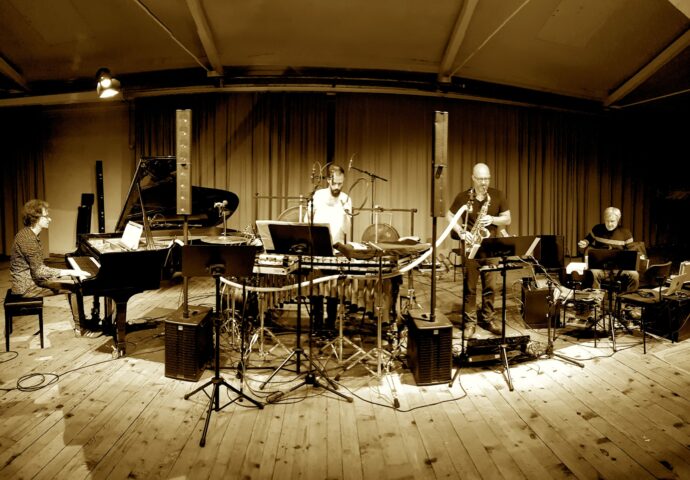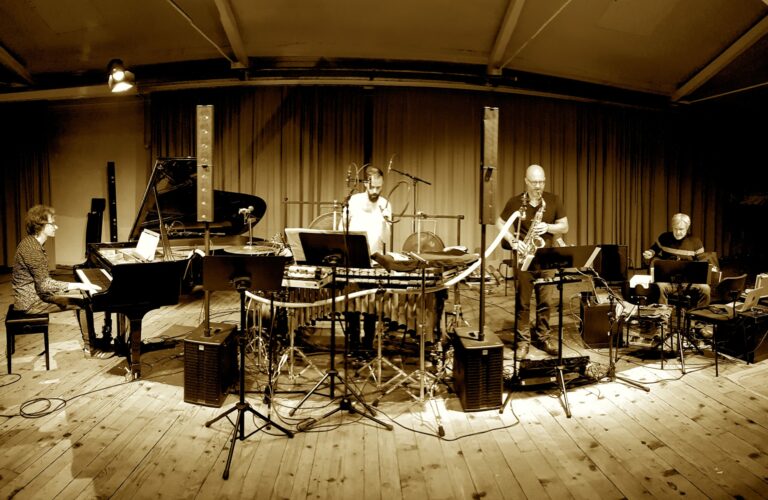Klaus Lang is an Austrian organist and composer who has developed a distinctive musical language. With a conviction that beauty cannot be found in ornamented symbols, color spectacles or splendor – rather in shades of gray, in the imperfect and in traces of what has disappeared – and with a belief that beauty arises in the listener and not in the considered object, Lang creates a music that makes the listener turn their attention inward and see the beautiful in itself. We encounter an approach that is most easily described as Buddhist. Not only to sound, but also to life. Instead of imposing his meaning, Lang lets the musical vibrations become open questions, as if every impulse, every persevering or broken tone becomes a humble question of an existential nature. A music that defends itself against conveying a message and instead makes the listener move towards a contemplative state – a freedom.
Klaus Lang sees music as a free and independent acoustic object. In his music he does not want to use sounds but rather let the sounds be explored and given an opportunity to develop its inherent rich beauty. Only when sound is allowed to be just sound can it be experienced as what it actually is: a temporal phenomenon – audible time. Klaus Lang sees time as the composer’s genuine material, and at the same time as the fundamental content of music. According to his view, musical material is: time experienced through sound. The purpose of music is to create experiences of time through listening. Music is audible time.
Since 2006, Klaus Lang has been Professor of Composition at the University of Music and Performing Arts in Graz. He is often invited as a teacher and lecturer at composition courses such as Ferienkurse Darmstadt and Impuls Academy Graz.





